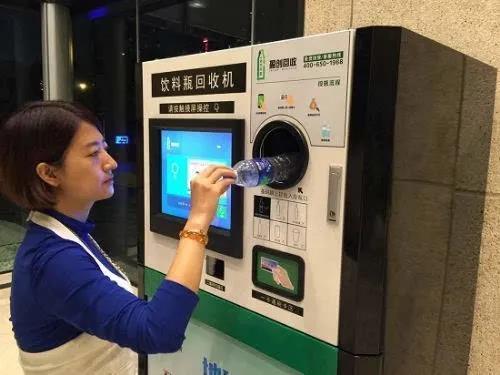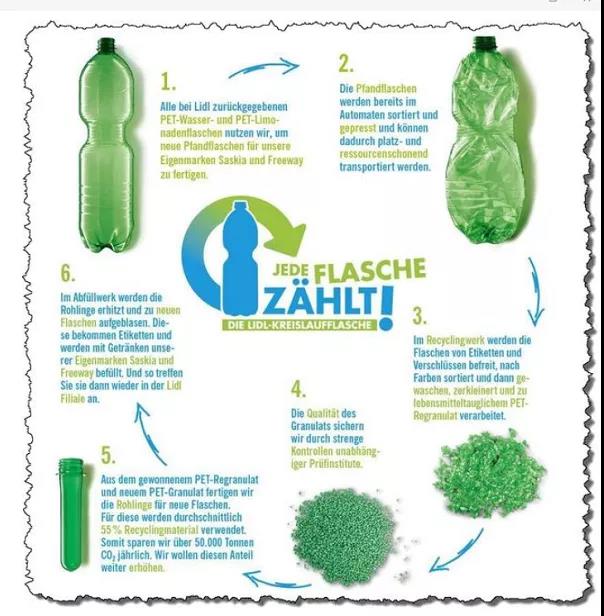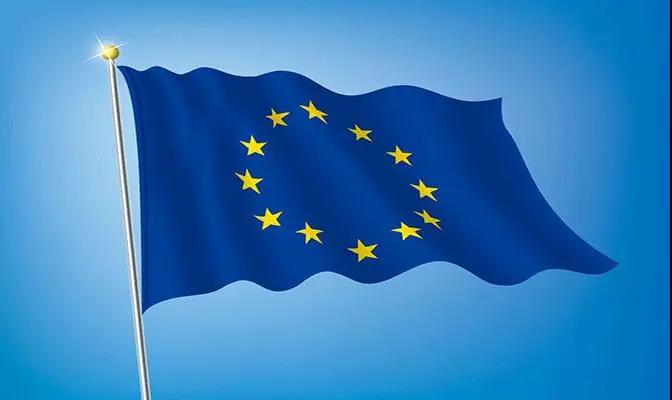Natural Mineral Waters Europe (NMWE), UNESDA Soft Drinks Europe and Zero Waste Europe call on the European Union to establish a new and efficient DRS for beverage packaging through the development of a legal framework to promote the transformation of the beverage industry to circularity.
The DRS system is simply a deposit refund system. This kind of system is very common, just like buying soda in glass bottles before, you can get back 50 cents if you return the glass bottle after drinking it. This method is primitive, but very effective, and it is really suitable for recycling beverage bottles.

On October 6, the European Natural Mineral Water (NMWE), UNESDA European Soft Drinks and Zero Waste Europe (ZWE) urged the EU to recognize the role of the Deposit Refund System (DRS) and support the development of packaging and packaging waste regulations for the new DRS in the EU revision lowest bar.
They also hope that policy makers and local stakeholders will cooperate to implement an efficient industry-wide collection plan across the EU. This is a measure of "mandatory + incentive" jointly promoted by the government and businesses. As stated in the European Union’s Circular Economy Action Plan, accelerating the transition to a circular economy is a collective goal, and DRS is part of the solution to help achieve this goal and achieve by 2030, making all packaging reusable and reusable recycling target.
In addition, the EU’s single-use plastics directive requires the recycling rate of plastic beverage bottles to reach 90% by 2029, and at least 25% of PET bottles to recycle plastic from 2025 (30% from all beverage bottles in 2030). This standard is directly against the current situation in Germany.

In Germany, every supermarket is equipped with a fully automatic garbage collection machine. When you go shopping in the supermarket, you will see a long line of people holding a pile of empty bottles waiting to pay back the money. Customers put the plastic bottles into the recycling machine one by one. After pressing the button, the machine will print a small ticket. The amount on the small ticket can be used to deduct the supermarket shopping loan. Germany uses high prices to recycle plastic bottles to encourage people to pay attention to environmental protection. It can be said that no matter where you throw away a bottle in Germany, you will soon be picked up because it can be sold for money.
''In view of the current collection performance of the entire EU, many EU member states are unlikely to meet the EU's collection rate requirements. This is why we support the well-designed DRS as one of the most effective options to meet the collection and recycling content targets set in the EU Single-use Plastics Directive. At the same time, a closed-loop recycling system is created to ensure the opportunity for materials to be returned and recycled in new beverage containers", UNESDA Director General Nicholas Hodac said.

"DRS not only increases the recycling rate of beverage packaging for the countries/regions where it is implemented, but also makes the plastic recycling stream more pure and single with fewer impurities. Benefiting from this, people can get higher-quality food-grade recycled materials.
In addition, they can also contribute to the EU's climate goals, such as reducing the need for raw materials through closed-loop recycling. However, despite the excellent past, the EU packaging and packaging waste legislation currently does not implement DRS in any way, nor does it ensure the closed-loop recycling of food-grade materials,” continued NMWE Secretary-General Patricia Fosselard.
The European Commission can help EU member states provide a strong framework for the establishment of an effective new DRS by setting minimum standards, thereby filling the institutional gap in this regard.
"The minimum standard should be based on the responsibility to people specified in the Waste Framework Directive. The development of this guideline at the EU level helps to ensure that the DRS infrastructure of member states is adapted to refillable packaging as much as possible from the outset, in line with the EU’s goals for packaging waste prevention and reuse. If these standards can be implemented, we believe that we can achieve the circular economy and climate goals faster," Said Joan Marc Simon, Director of Zero Waste Europe.
NMWE, UNESDA Soft Drinks Europe and Zero Waste Europe believe that any new deposit refund system should follow some basic principles of geography and material scope, governance, consumer convenience and incentives, and producers' access to recycled materials.
Several key principles of the new deposit refund system (DRS):
Material range:
The DRS should include the relevant beverage packaging type and size (up to 3 liters).
The new DRS should adapt to recyclable beverage packaging as much as possible from the beginning.
Recovery rate:
The design of DRS should make the recycling rate of each packaging material reach 90%.
Governance:
DRS should be established and operated by the voluntary industry as a central deposit management organization (CDMO) in a non-profit structure, and the operation process should have a transparent and verification system.
Retailers play a key role in the redemption process and should therefore join the governance of CDMO to ensure optimal implementation and management of DRS.
Domestic legislation should be formulated to clearly outline such things as the production obligations of producers, the recycling obligations of retailers, the powers of CDMO, and the government measures that should be promulgated in order to reduce the cases of violations by the responsible parties.
System design:
The establishment of the DRS system should be based on cost-effectiveness as one of the key principles.
Revenues (such as unredeemed deposits) should be kept in the system to cover setup and operating costs.
Costs and revenues should be reallocated to specific materials to avoid repeated government subsidies and waste of materials.
Consumer education and publicity activities should be included in the cost of the system.
The CDMO of each country should define different deposit levels by considering local conditions and encouraging a “bring back” culture.
All participants in the system should collaborate to achieve the best cost-effectiveness and fair compensation for the net cost of the logistics of the recycling system.
Redeem points:
The exchange system near residents should be convenient for consumers, and should be effective and efficient, including exploring relevant digital technology options.
Retailers should be required to take back all packaging materials stored on the market, but small operators may be restricted by space.
If a reverse vending machine or other DRS reverse technology is used, the CDMO shall define and follow the minimum technical requirements.
Obtain recycled materials:
As an obligated industry, beverage manufacturers should obtain fair and legal opportunities to obtain recycled materials captured by DRS, including obtaining food-grade recycled content through “priority access” or “priority purchase rights”.

